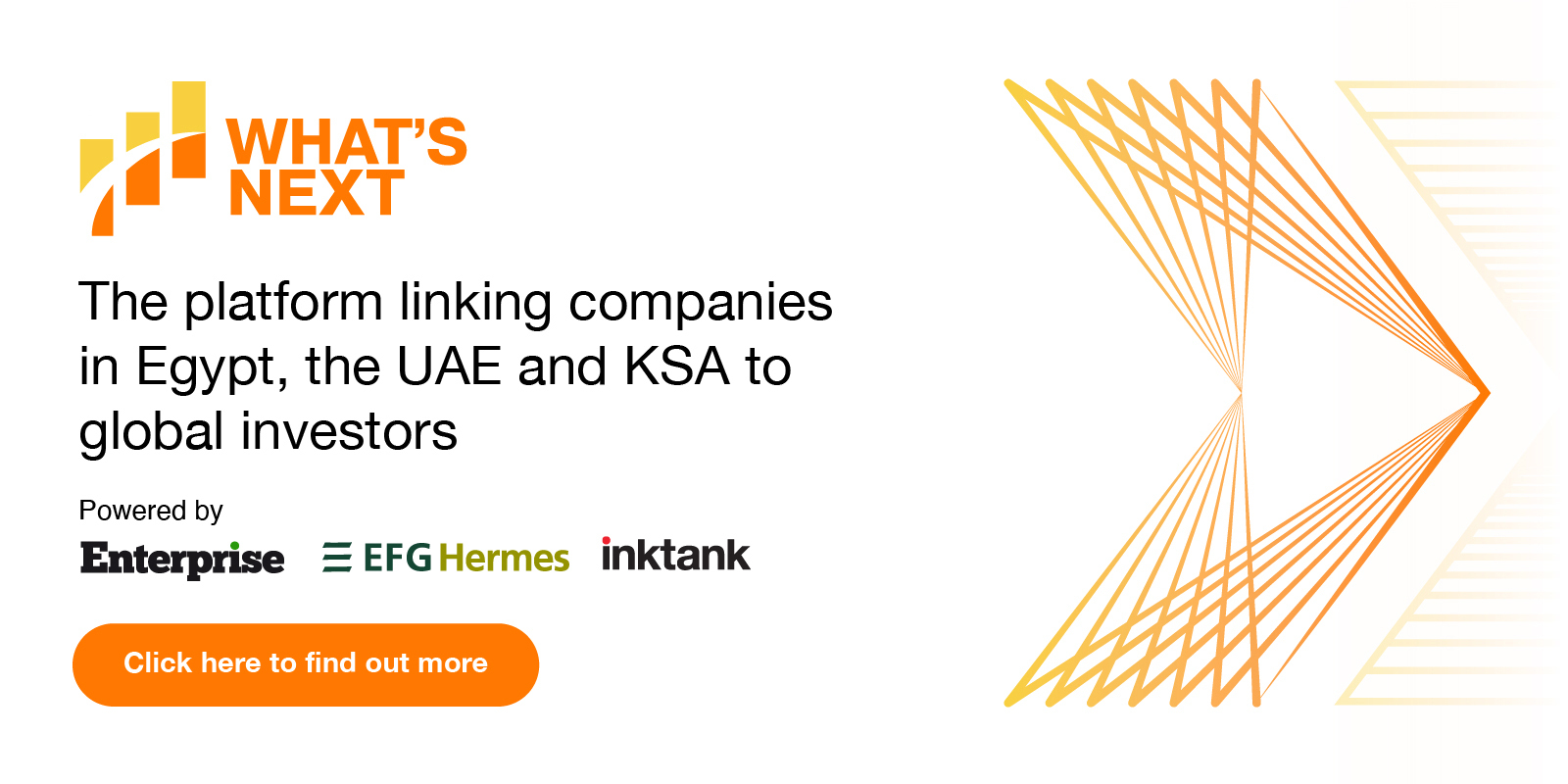- State presents revised crisis budget to the House with more spending on food, energy, health and education. (Budget Watch)
- Local fintech Paymob closes USD 50 mn series B round, wants to enter GCC this year. (Startup Watch)
- Occupancy rates rise in 1Q as travel restrictions ease. (Tourism)
- Allianz + Sanlam merge African operations. (M&A Watch)
- We’re getting EUR 138 mn in EU development grants. (Development Finance)
- More Israeli gas could be coming to Egypt, courtesy of Energean. (Also on our Radar)
- Opening to the public this year: The Ring Road bus transit system + a new phase of Metro Line 3. (Last Night’s Talk Shows)
- Global market sell-off intensifies on recession fears. (What We’re Tracking Today)
- Plans are afoot to introduce a local carbon trading scheme in Egypt. (Going Green)
- Aramco is close to eclipsing Apple as the world’s most valuable company. (Planet Finance)

Tuesday, 10 May 2022
AM — With a global equities selloff and a crisis budget in the House, it’s one of “those” mornings…
TL;DR
WHAT WE’RE TRACKING TODAY
Good morning, friends, and happy hump day. We have a really packed issue for you today, so let’s jump right in:
THE BIG STORY EVERYWHERE THIS MORNING- The global market sell-off looks like it is getting serious. Global equities suffered their heaviest one-day losses since June 2020 yesterday. Investors are worried that some of the world’s largest economies are heading towards recession at the same time as when central banks are raising interest rates to curb soaring inflation. The FTSE gauge of global stocks fell 3% yesterday, hitting its lowest level since December 2020 as ominous economic data from China and Germany intensified the sell-off triggered last week by the Federal Reserve’s 50-bps rate hike. The Financial Times has more.
The EGX30 fell at a slower pace yesterday than the FTSE’s global gauge, losing 1.8% by the closing bell. The index is now down 8.7% year-to-date.
Other emerging market indexes also took a hit yesterday: Emerging-market stocks hit their lowest level in nearly two years yesterday, and have fallen 29% from their peak in February 2021.
US stocks picked up where they left off last week: US equities fell yesterday to their lowest level in 13 months as last week’s broad-based sell-off continued. The S&P 500 tumbled 3.2% during trading. Tech stocks continued to see the heaviest losses though, with the Nasdaq closing 4.3% in the red.
What are folks worried about? Risk of a global recession is increasing due to an oncoming economic downturn in Europe, covid-19 lockdowns in China, and rising bond yields in the US which are putting pressure on emerging markets, Institute for International Finance (IFF) chief economist Robin Brooks said yesterday.
None of this is good for emerging markets: The greenback hit its highest level in almost 20 years yesterday as investors respond to both rising yields and the darkening clouds by turning to safe haven assets, Reuters reports. The USD index, which measures the greenback against a basket of currencies, has risen almost 9% this year, its highest since late 2002, the newswire says.
And other asset classes are also suffering:
BTC dropped to its lowest level in almost a year, Reuters reported. The world’s largest digital currency fell below USD 30k yesterday for the first time since July 2021. It has tumbled 13% so far in May and is down nearly 33% year-to-date..
Oil also fell yesterday, with Brent crude losing almost 6% as traders worried about China’s lockdowns and the possibility of a global recession.
Same again today? Asian shares are down sharply in heavy trading so far today, although shares in Shanghai have clawed back losses and were mounting a rally at dispatch time. Futures suggest major European benchmarks will face selling pressure at the opening bell later this morning — but imply that Wall Street could see the Nasdaq, Dow and S&P open in the green.
YOUR COP27 WARNING of the morning: The world is on track to break the 1.5°C warming threshold within five years because of record greenhouse gas levels, the FT writes, suggesting we’re nearing a critical point in the battle to not cook ourselves off planet. The salmon color paper warns that with “scant policy action” on net zero targets coming out of COP26 last year, there has now been “little progress toward improved national targets ahead of the next big summit in the Egyptian resort of Sharm El Sheikh later this year.”
HAPPENING TODAY-
IT’S INFLATION DAY: Figures for April are due out today. Consumer prices accelerated at their fastest rate in almost three years in March as the spillover effects from the war in Ukraine fed through to the Egyptian economy. With commodity prices still feeling the effects of the conflict, the devaluation of the EGP, and the traditional Ramadan inflationary hit, we’re not expecting the figures to have been any better in April. We’ll have the rundown for you in tomorrow’s EnterpriseAM.
WATCH THIS SPACE- Where’s that policy statement? We’re still waiting for Prime Minister Moustafa Madbouly to unveil his government’s plans to boost private sector involvement in the economy. Cabinet said Saturday that the PM would hold a presser “at the beginning of next week” to announce new details on how the government intends to attract more FDI and private-sector investment in Egypt, but so far there has been radio silence.
MEANWHILE- Yesterday was budget day: Monday might not have been the perfect day to deliver a major policy announcement, given that all eyes were fully trained on the House of Representatives, where Finance Minister Mohamed Maait was unveiling the details of the draft FY 2022-2023 budget. We have the key details of the budget in the news well, below.
Whether or not we get word of the state’s privatization plans this week, we now have a rough idea of what it wants to achieve in the coming fiscal year: The draft budget shows that the government wants to raise EGP 6 bn from selling shares in state-owned companies in the coming fiscal year. Which companies and how many shares will be up for grabs, we still don’t know. But the government has sought to convey its seriousness about privatizing state assets in recent days, pledging to resume its privatization program in September and offer shares in several military-owned firms by the end of the year.
ALSO TODAY- The EBRD’s annual meeting and business forum get underway in Marrakech and will wrap up on Thursday. Among the day-one highlights:
- EBRD’s regional economic prospects will be released at 12 noon CLT.
- A panel discussion headlined “Egypt: A development story of a green and resilient economy” will feature International Cooperation Minister Rania Mashat, EBRD SEMED chief Heike Harmgart, and SCZone chairman Yehia Zaki.
The full program is online here.
EBRD also said yesterday that it will lend up to USD 4.8 mn to Intro Sustainable Resources (Intro-SR) and Intro Solar to back Egypt’s green transition. EBRD has now invested more than EUR 8.5 bn in 144 across Egypt since it started working here in 2012.
|
IN OTHER INTERNATIONAL NEWS-
Vladimir Putin’s Victory Day speech is front page news in the global press this morning. Western media note that the Russian president’s address gave little away about his government’s intentions in Ukraine as the conflict enters its 11th week. Reuters, the AP, the New York Times and the Washington Post have the story.
Meanwhile, the EU is seeing mixed results as its presses for a ban on imports of Russian oil. Negotiations between the EU and Hungary, which has refused to agree to the ban, have apparently made “some progress,” though the bloc dropped proposals to prevent European shipping companies from carrying Russian crude due to pushback from Malta and Greece. The Financial Times and Bloomberg have more.
And Germany may not be able to look to Qatar as it searches for alternative sources of natural gas: Talks between the two countries have reportedly hit a snag after Berlin expressed reluctance to agree to Qatar’s demand for a minimum 20-year supply agreement, Reuters says.
SOUND SMART- Meet the Arab backers of Elon’s bid for Twitter. Alwaleed bin Talal is kicking in a stake worth USD 1.9 bn, Qatar’s SWF has committed USD 375 mn, and the UAE’s Binance (the world’s largest crypto exchange) has pledged USD 500 mn.
FOOD FOR THOUGHT- Does having power (at a job, in life — not of the electric power variety) cause brain damage? The Atlantic writes that a new study out of Canada suggests that accumulating power sees some leaders “lose mental capacities — most notably for reading other people — that were essential to their rise.”
For our fellow media nerds: The Pulitzer prizes were announced yesterday, with the New York Times, Washington Post and Reuters being among those to take home big gongs. You can check out the full list here and explore more here.
CIRCLE YOUR CALENDAR-
A huge US “GreenTech business mission” is inbound next week. More than 40 US companies will be in Egypt during 15-17 May to kick the tires on green investment and potential business partnerships in sectors ranging from energy to healthcare, agriculture, aviation, construction and water resource management. The high-level delegation will meet with members of the business community and senior government officials.
The Central Bank of Egypt will meet to review interest rates on Thursday, 19 May.
The PSA world squash championships get underway in Cairo this Friday, 13 May. The men’s and women’s finals will be played on 22 May. There is USD 550k at stake for each of the men’s and women’s championships, making this the biggest purse on record for a squash tourney. The CIB-sponsored championships will play out at SODIC’s Club S Allegria and at the National Museum of Egyptian Civilisation
The last of this season’s earnings releases will drop by 31 May after the Financial Regulatory Authority granted listed companies a two-week deadline extension.
Check out our full calendar on the web for a comprehensive listing of upcoming news events, national holidays and news triggers.
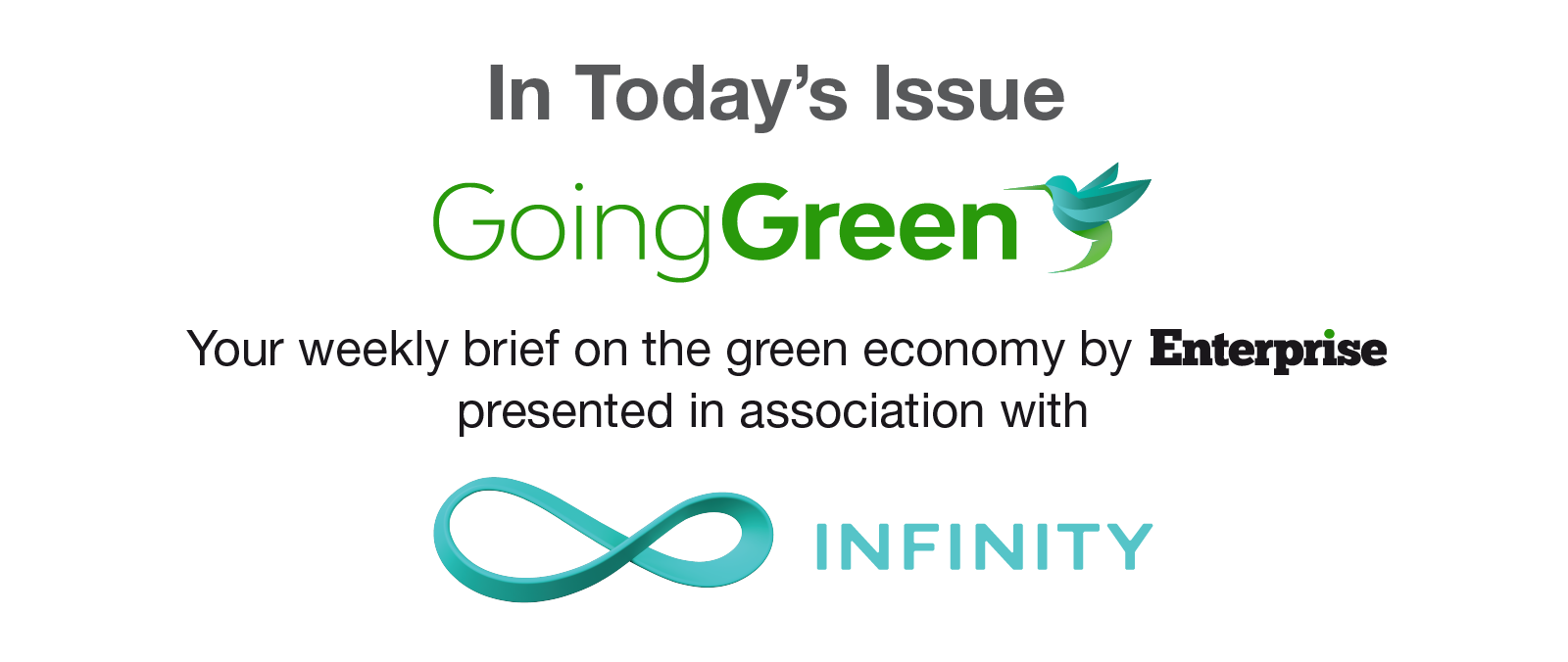
*** It’s Going Green day — your weekly briefing of all things green in Egypt: Enterprise’s green economy vertical focuses each Tuesday on the business of renewable energy and sustainable practices in Egypt, everything from solar and wind energy through to water, waste management, sustainable building practices and how you can make your business greener, whatever the sector.
In today’s issue: Egypt recently announced plans to set up a local carbon trading market that would allow institutions to issue carbon credits in exchange for implementing carbon sequestration projects. While details about the platform are so far scant, Enterprise got a sense of what the market could look like, Egypt’s previous history with carbon trading, and the challenges the country faces to roll out a local carbon market.
The Spring Edition of Somabay Endurance Festival takes place from May 26th – 28th, featuring a host of different races suitable for all ages and abilities. Join this family-friendly sports event by signing up at www.thetrifactory.com and get ready to #ExperienceEndurance. Book now: www.thetrifactory.com/somabay
BUDGET WATCH
State presents revised crisis budget to the House with more spending on food, energy, health and education
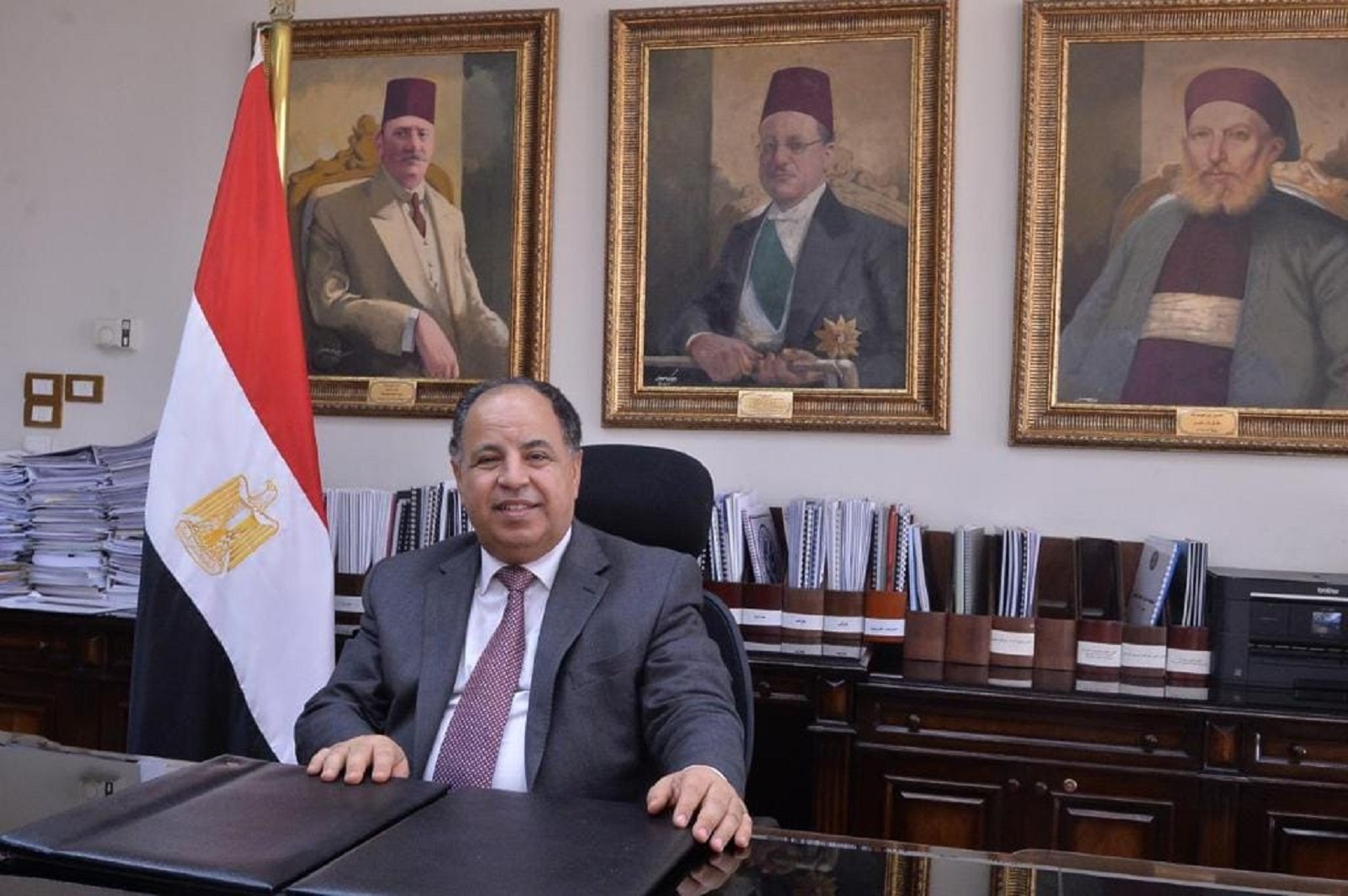
Draft FY 2022-2023 budget presented to the House: The budget deficit is set to widen in the coming fiscal year as increasing social spending and rising borrowing costs cause spending to outpace revenue growth, according to projections in the draft FY 2022-2023 budget released yesterday by the Finance Ministry. Finance Minister Mohamed Maait presented the budget in the House of Representatives yesterday, saying that the government’s spending plans for the coming year will support the areas of society most affected by the economic crisis triggered by the war in Ukraine.
A crisis budget: Prime Minister Moustafa Madbouly had directed the Finance Ministry in March to rethink the FY 2022-2023 budget to “reassess priorities” as the global price of key commodities including oil and wheat started rising even faster than before thanks to Russia’s invasion of Ukraine. The war also threatens a key hard currency earner: Prior to the invasion, Russian and Ukrainians together accounted for nearly a third of our inbound tourism market.
HIGHLIGHT #1- Rising food + energy prices will push up the subsidy spend: Fuel subsidies will rise more than 50% to EGP 28.1 bn while food subsidies will climb slightly to EGP 90 bn, from EGP 86 bn this year. This will increase the state’s total subsidy spend to EGP 356 bn, up 11% on last year.
HIGHLIGHT #2- Health + education spend to increase: The government will raise healthcare spending by 18% to EGP 128.1 bn. It has also made an EGP 192.7 bn earmark for education, up 12% on 2021-2022. Social protection programs will also receive more government support, with the allocation due to rise 4% to EGP 293.4 bn.
HIGHLIGHT #3- Strong tax takings will underpin revenue growth: The government expects to increase tax revenues by almost 20% next year, rising to EGP 1.17 tn from EGP 983 bn.
Spending > revenues: The government is expecting spending to rise 13% to almost EGP 2.1 tn next year, while revenues will increase 11% to EGP 1.52 tn, the figures show. This will widen the budget deficit to EGP 558.2 bn from EGP 475.6 bn in FY 2021-2022.
Debt service costs are expected to be brought down to 7.6% of GDP — or around a third of the total budget spend — compared with the 8.2% penciled in for FY2021-2022. The government also plans to reduce the debt-to-GDP ratio to 84% for the next fiscal year, and to 75% over the next four years.
Debt repayments will account for half of gov’t revenues: The government’s interest bill will rise 19% to EGP 690.1 bn next year, accounting for a third of government spending and 49% of revenues. Debt as a proportion of GDP will decline to 84% from a projected 85% this year.
The deficit will narrow as a % of GDP: The FinMin is targeting a 6.1% deficit in 2022-2023, down from a projected 6.2% this year, and is looking to improve its primary surplus to 1.5% of GDP from a forecasted 1.3% this year.
Other key spending figures:
- Wages: The public wage bill will climb to EGP 4 bn, up 11% on 2021-2022;
- Goods and services: Rising food and energy costs will increase expenditure on goods and services to EGP 1.3 bn, up 21%;
- Public investment: The government will invest EGP 376.4 bn;
- COP27: The budget allocates some EGP 3 bn for the COP27 climate summit taking place in Sharm El Sheikh in November.
Other key figures from the budget:
- GDP growth: 5.5%
- Oil prices: USD 80 / barrel, up from USD 60 last year
- Wheat prices: USD 330 / tonne, up from USD 255 last year
WHAT’S NEXT? The final budget document typically goes up for a vote at the general assembly before the start of the new fiscal year and then heads to President Abdel Fattah El Sisi, who must sign it into law. If the budget doesn’t pass before 30 June, the current budget rolls forward to direct state spending until the new document is passed.
ALSO IN THE HOUSE-
MPs agree to unlock fresh funds for debt payments: The House yesterday voted in favor of unlocking another EGP 6 bn to allow the government to meet debt repayments, Youm7 reported. Higher-than-expected interest rates and the devaluation of the EGP have pushed up the government’s interest bill, forcing it to table legislative amendments to increase allocations in the 2021-2022 budget.
But would that be sufficient? Officials said earlier this week that the government might require more than EGP 6 bn to meet its obligations through to the end of the current fiscal year. One ministry suggested that this was because the amendment was drafted on the expectation that the US Federal Reserve would only raise interest rates by 25 bps last week.
STARTUP WATCH
Paymob closes USD 50 mn series B round, wants to enter GCC this year

Paymob closes Egypt’s largest ever fintech series B round: Fintech startup Paymob raised USD 50 mn in a series B round, it announced in a statement (pdf) yesterday, calling it the largest round of its type for an Egyptian fintech firm. The round was led by emerging market investor Kora Capital, PayPal’s venture capital arm PayPal Ventures, and Clay Point, an agent of London-based investor Eden Rock.
Who else participated? Other investors included Helios Digital Ventures, the UK government’s development finance arm British International Investment (formerly CDC Group), and the Global Ventures-managed fintech fund Nclude, which counts a cornucopia of state-owned banks among its limited partners. All Paymob’s existing investors also participated — including A15 and Dutch entrepreneurial development bank FMO, who took part in Paymob’s USD 18.5 mn series A round last year.
Big money: While many startups don’t specify how much they’ve raised (instead saying they raised an “xx-figure” round, while failing to even specify a currency), the transaction is one of the the largest funding round we’ve heard of for a local startup, earning mention in the same breath as MNT-Halan’s blockbuster USD 120 mn round last September and ahead of Khazna’s USD 38 mn series A last month.
Paymob is doing well: It closed the round n the back of a strong 2021, during which the company recorded 4x y-o-y growth in the number of merchants and monthly volumes, the statement read.
Where the funds are going: Paymob will use the round for its regional expansion plans across the GCC and North Africa, to add new products, and expand its merchant base. “We want to increase the merchant network we have whether online, POS or tap-on-phone,” co-founder and CEO Islam Shawky told Enterprise. He added that the company is building tools for merchants to better manage their business expenses.
Paymob wants to enter a GCC country this year, Shawky tells us. “The problem we’re solving is not an Egypt-only problem. We really see that a lot of emerging markets are suffering from being extremely cash dependent, SMEs specifically,” he said. The company will start operations in Pakistan next quarter after officially launching there last month, and wants to onboard over 100k Pakistani merchants within two years, Shawky said.
It also wants to get in on financial services: “We’re looking at how to grow the working capital of businesses in partnership with financial institutions … we’re moving from just payments into becoming a financial services enabler,” he said.
Paymob is one of four companies Nclude has invested in so far: The USD 85 mn fintech fund launched by Dubai-based VC Global Ventures and backed by Egyptian state-owned banks has also announced investments in Khazna, Lucky and Mozare3.
Investors are super keen on Egyptian fintech: Egypt has seen an increase of 20 startups, a 300% increase in funding, and more than double the average ticket size when it comes to fintech and fintech-enabled startups. Curious about what’s next in fintech? We recently sat with a number of fintech leaders to learn more about the sector, read our two-part discussion here and here or go listen on Apple Podcasts.
The story got international coverage from Forbes Middle East and The National.
IN OTHER STARTUP NEWS- Emirati buy-now-pay-later startup Cashew will enter the Egyptian market with the help of Mashreqbank, after the UAE lender acquired a c. 20% stake in the company in a USD 10 mn debt and equity transaction, Reuters reported.
Also eyeing expansion into Egypt: A new merger between UAE incubator CE-Creates and Abu Dhabi VC Hatch & Boost, according to a statement picked up by Wamda. The partnership will operate under the name hatch & boost Ventures, and plans to expand into Egypt and Saudi Arabia “in the coming years.”
TOURISM
Occupancy rates rise in 1Q as travel restrictions ease

The easing of travel restrictions was good news for Egypt’s hotel industry during the first quarter of the year, which saw rising occupancy rates even as the conflict in Ukraine prevented tourists from two of Egypt’s key markets from visiting the country from February, according to figures in Colliers International’s quarterly MENA hotels report (pdf). Occupancy rates in Cairo more than doubled y-o-y in 1Q as leisure and corporate tourists returned to the capital after covid-19 travel restrictions were relaxed. Egypt’s Red Sea resorts also benefited from the normalization, with hotels in Hurghada reporting a 84% rise in occupancy rates and Hurghada increasing 46%. The Mediterranean city of Alexandria saw rates fall 1%.
What drove the rebound? The government’s easing of travel restrictions “induced significant inbound leisure demand in 1Q 2022, positively impacting demand for hospitality products in the country,” Colliers said. Strengthened political ties between Egypt and some of the key tourist markets in MENA and Europe also backed the recovery, it added.
It has been a tough few years for Egyptian tourism: The suspension of travel triggered by the pandemic effectively shuttered the nation’s tourism ministry for three months back in 2020, causing revenues in the sector to plummet. Recovery has been gradual thanks to new covid variants and a slow global vaccine rollout but a rise in tourists during the second half of last year brought annual revenues back to pre-pandemic levels. The tourism industry is a crucial source of hard currency for Egypt and accounted for almost 9% of GDP prior to the pandemic.
The sector is now grappling with fallout from Russia’s invasion of Ukraine in late February: The war has all but shut out Ukrainian and Russian tourists from traveling abroad, depriving Egypt from two of its key markets. The two countries made up some 30-40% of all visitors to Egypt before the war broke out and were fixtures of the Red Sea package holiday trade. Egypt is still seeking alternatives to plug the Black-Sea-shaped hole, including new and resumed international flight routes, other European markets, and attracting little-tapped markets in Latin America and Asia in the long term.
Average daily rates (ADRs) in Egyptian cities may be “inflated given the devaluation of the EGP,” Colliers said, with Cairo and Sharm seeing the biggest increases because most tourists are charged in USD or EUR. The capital saw an ADR of 181% while Sharm saw an ADR of 54%. “When the local currency is used as the presentation currency, an unnatural y-o-y growth in ADR is observed due to exchange rates from USD/EUR to EGP, suggesting better performance than what is observed using USD-denominated performance indicators,” it added.
There’s a positive outlook to 2024, with overall supply in the market set to increase at a CAGR of 1% between 2022 and 2024, with some 4.2k keys set to enter the market. Hurghada alone will introduce over 2k keys to the supply by 2024, according to Colliers.
M&A WATCH
Allianz + Sanlam merge African operations
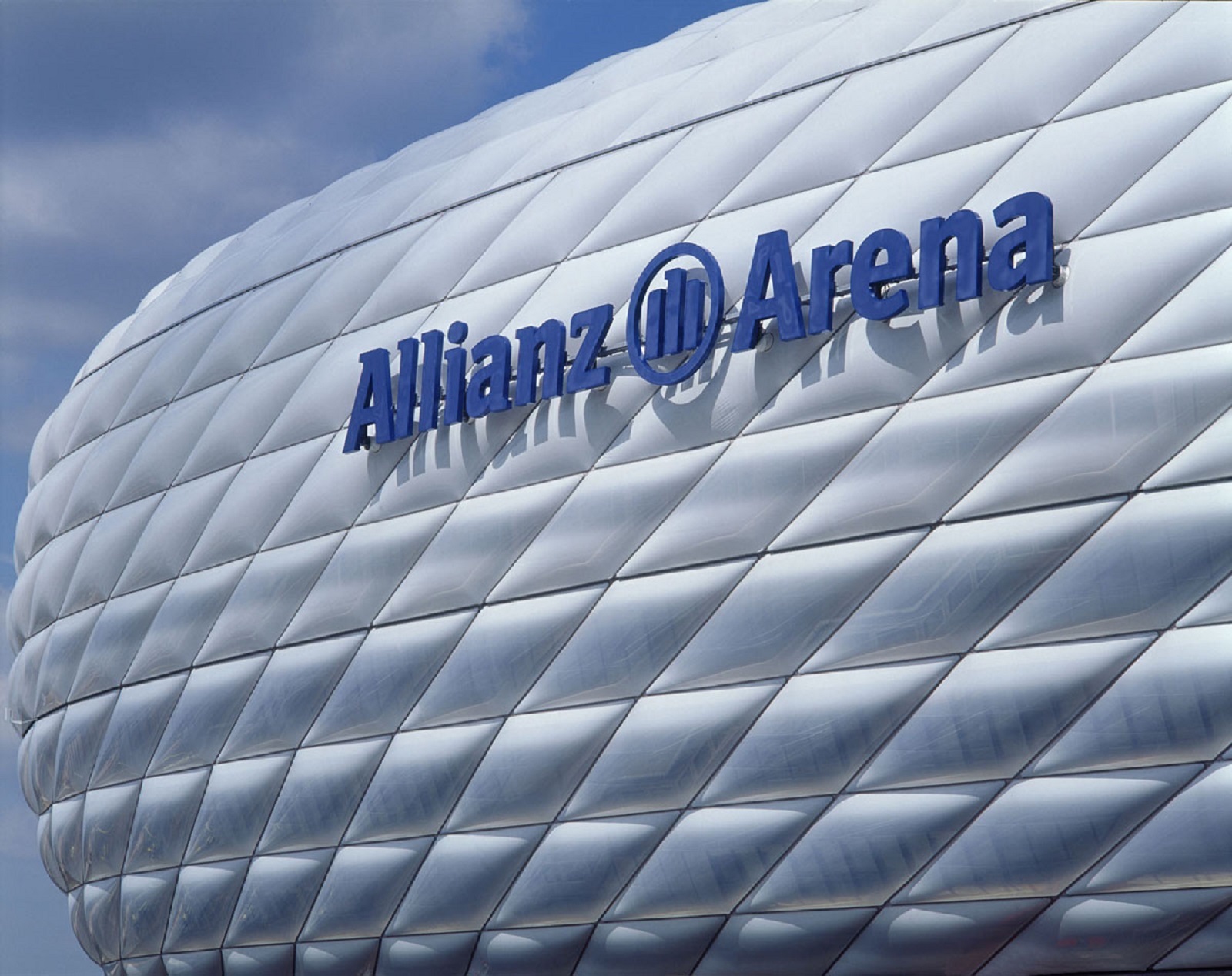
Allianz and South Africa’s Sanlam are merging their operations in Africa to create “the largest pan-African non-banking financial services entity on the continent,” the companies announced in a joint press release (pdf). The newly formed joint venture aims to accelerate the two companies’ growth across their markets in the continent, particularly life ins., which is characterized by a low penetration rate, Allianz Egypt CEO Ayman Hegazy told Enterprise.
The joint venture is expected to have an estimated value of ZAR 33 bn (c. USD 2.05 bn), and will operate in the 29 African countries where one or both companies have a presence. Sanlam will continue to operate on a standalone basis in South Africa, where it is headquartered, and Namibia is set to be included at a later stage.
The JV hopes to offer a variety of ins. products, accelerate product innovation, and facilitate financial inclusion in African markets with high growth rates, in addition to improving access rates to life and general ins., Hegazy told us. This will be done by leveraging Sanlam’s expertise in Africa and Allianz’s ins. solutions for multinationals.
The chairmanship of the joint venture partnership will rotate every two years between the two companies, and the CEO will be announced at a later stage. The agreement is still pending regulatory approval.
What this means for Allianz Egypt: The group’s subsidiaries — Allianz Ins. and Allianz Life — will continue their normal operations under the same board of directors, Hegazy said. The company is currently in the process of obtaining local approvals for the merger.
This marks Sanlam’s first entry into Egypt after eyeing our market for some time. The insurer has had plans to expand into Egypt and Morocco since 2019, and was at one point looking to take an equity stake in an undisclosed Egyptian player.
DEVELOPMENT FINANCE
We’re getting EUR 138 mn in EU development grants

The EU and the International Cooperation Ministry yesterday signed development financing grants worth a total of EUR 138 mn that will fund healthcare projects, administrative reform, and environmental, rural, and community development initiatives, according to a cabinet statement. The funding comes within the framework of the EU-Egypt Partnership Priorities for 2021-2027 and was announced to coincide with Europe Day, the statement said.
The breakdown:
- The Health Ministry will get EUR 80 mn in a second tranche of budget support funding.
- The Agriculture Ministry will get EUR 24 mn in funding through a partnership between the EU and the Italian Agency for Development Cooperation.
- The Environment Ministry will get EUR 14 mn to support the new national waste management strategy through German development agency GIZ.
The grants also include EUR 7 mn for the Local Development Ministry for projects focused on Upper Egypt, to be implemented by the UNDP; an EUR 5 mn grant for the planning and ICT ministries for administrative reforms through the OECD; another EUR 5 mn for the Finance Ministry for financial management reforms; and EUR 3 mn for the Micro, Small and Medium Enterprises Development Agency as part of an urban employment program in partnership with French development agency AFD.
The EU is a key provider of development finance to Egypt, with ongoing cooperation projects amounting to around EUR 1 bn, the statement said. We could see another EUR 1 bn by 2027, EU Commissioner for Neighborhood and Enlargement Oliver Varhelyi said late last year.
MOVES
CI Capital has named Chahir Hosni (LinkedIn) the CEO and managing director of its brokerage business, it said in a press release (pdf). Hosni joins the firm from Saudi Arabia’s Al Rajhi Capital, where he headed the brokerage since 2018. His industry experience includes the UAE, Saudi Arabia, and Egypt, including ADCB Securities, Scope Investment, and EFG Hermes, according to the statement. Hosni replaces Karim Khadr (LinkedIn) who has been appointed as the group’s managing director for equity capital markets.
Abu Qir Fertilizers has appointed Omar Mohamed Mehanna and Ahmed Mohamed Al Hamly to its board of directors as representatives of Abu Dhabi wealth fund ADQ, which last month purchased a 21.5% stake in the fertilizers producer, a statement to the EGX read (pdf). The appointments come after the National Investment Bank’s board reps submitted their resignations following the acquisition.
LAST NIGHT’S TALK SHOWS
Yesterday’s unveiling of the draft budget for the coming fiscal year dominated the conversation on the airwaves last night, including on Al Hayah Al Youm (watch, runtime: 8:39), Kelma Akhira (watch, runtime: 9:29) and Ala Mas’ouleety (watch, runtime: 31:07). We have the key details in this morning’s news well, above.
Zamalek residents, rejoice, as your roads could be less congested (maybe) as a result of drilling operations from the third phase of Cairo Metro Line 3. The third phase of the line — running from Ataba, passing through Zamalek to El KitKat, Imbaba and Rod Al Farag — will open to the public at the beginning of the July, and pilot operations will start next week, Transport Minister Kamel El Wazir told El Hekaya’s Amr Adib (watch, runtime: 5:18). Zamalek residents have been complaining for ages now that drilling from the construction of the proposed station on the island would affect the structural soundness of old buildings and change the nature of the district — to say nothing of having snarled traffic during the buildout.
The Cairo Ring Road bus rapid transit (BRT) system will be up and running by the end of the year, El Wazir said (watch, runtime: 3:13). The system will replace microbuses as the main mode of public transport on the Ring Road, El Wazir said. The BRT system will provide an alternative means of transportation on the Ring Road and is aimed at reducing traffic on the congested freeway.
Also getting a mention:
- Gulf help eases FX pressure: The USD 5 bn provided by Saudi Arabia last month to back Egypt amid the Ukrainian crisis has eased the pressure on the EGP, Fakhry El Fiqi, head of the House Planning and Budget Committee, told Ala Mas’ouleety’s Ahmed Moussa (watch, runtime: 2:02).
- Covid makes its talk show comeback: Kelma Akhira’s Lamees El Hadidi discussed the emerging threats posed by the ongoing covid outbreaks in China and South Africa with Health Ministry spokesman Hossam Abdel Ghaffar (watch, runtime: 10:35).
- Actors will be exempted from paying VAT for unpaid appearances on TV shows, a document from the Tax Authority to the Actors’ Syndicate showed, according to Kelma Akhira’s El-Hadidi. (watch, runtime: 1:45)
EGYPT IN THE NEWS
Harassment in Egypt is getting the headline treatment in the foreign press this morning: More outlets have picked up the news from earlier this week that 13 boys were arrested after allegedly harassing two female tourists at the Giza Pyramids. The story, which sparked debate over the safety of tourists at heritage sites, is getting ink in the Associated Press | BBC | The Independent.
Also getting attention this morning:
- What does rapprochement between Ankara and Riyadh mean for our relationship with Turkey? Turkish President Recep Tayyip Erdogan's recent visit to Saudi Arabia marks an intensification of his regional charm offensive, but the future of Turkish-Egyptian relations remains unclear. (Bloomberg | Al Monitor)
- Don’t eat poisonous pufferfish: The Health Ministry has warned against fishing for or eating the poisonous Mediterranean Takifugu fish, calling it the “deadliest fish in the world.” (Arab News)
- Egyptian actor Mohamed Mamdouh won best actor at the Swedish Malmo Arab Film Festival for his role in the film Abu Saddam (trailer). (Arab News)
- An Egyptian scientist has invented a new variety of rice that is resistant to drought and salinity. (Al Monitor)
ALSO ON OUR RADAR
Energean could sell 8 bn cubic meters of natural gas per year to Egypt from a newly-discovered field off the Israeli coast, the energy company said (pdf) yesterday. The company has already inked an MoU with the Egyptian General Petroleum Company to supply the gas and could soon sign a binding agreement.
Other things we’re keeping an eye on this morning:
- The luxury Dubai-based Address hotel is coming to Egypt: Emaar Hospitality will launch the Address Marassi Marina next year. The Address is a house brand of Emaar. (Zawya)
- Egypt wants local wheat to cover 65% of the country’s consumption by 2025, up from 45% in 2020, Planning Minister Hala El Said told the House of Representatives. (Statement)
PLANET FINANCE
Saudi oil giant Aramco is close to taking Apple’s crown as the world’s most valuable company, Bloomberg reports. Aramco briefly hit a record high yesterday, bringing its market cap to USD 2.44 tn, close to Apple’s USD 2.49 tn. The Saudi oil giant has been buoyed by soaring oil prices this year. At the same time, Apple’s shares have sunk amid a heavy tech sell-off in US markets. The company’s shares fell another 3.1% yesterday, leaving it more than 16% in the red year-to-date.
Non-oil business activity in the UAE and Saudi Arabia maintained solid growth in April despite the looming threat of inflationary pressures resulting from rising fuel and material prices:
- The KSA’s PMI dipped to 55.7 in April from 56.8 in March — its lowest reading in three months, but still well above the 50.0 mark that separates expansion from contraction. Output and new orders continued to rise but at their slowest pace since January, as increased costs began to weigh on client demand. (PMI, pdf)
- Increased client demand and a rise in exports continued to propel business activity in the UAE, with the PMI slipping marginally to 54.6 in April from 54.8 in March. Output and new orders continued to rise sharply during the month, but cost pressures remained at their highest levels in three years in light of the rise of materials costs on the back of the Russia-Ukraine war. (PMI, pdf)
|
|
EGX30 |
10,907 |
-1.8% (YTD: -8.7%) |
|
|
USD (CBE) |
Buy 18.44 |
Sell 18.52 |
|
|
USD at CIB |
Buy 18.45 |
Sell 18.53 |
|
|
Interest rates CBE |
9.25% deposit |
10.25% lending |
|
|
Tadawul |
13,815 |
0.0% (YTD: +22.5%) |
|
|
ADX |
10,004 |
-0.7% (YTD: +17.9%) |
|
|
DFM |
3,622 |
-2.0% (YTD: +13.3%) |
|
|
S&P 500 |
3,991 |
-3.2% (YTD: -16.3%) |
|
|
FTSE 100 |
7,217 |
-2.3% (YTD: -2.3%) |
|
|
Euro Stoxx 50 |
3,527 |
-2.8% (YTD: -18.0%) |
|
|
Brent crude |
USD 105.94 |
-5.7% |
|
|
Natural gas (Nymex) |
USD 7.14 |
+1.7% |
|
|
Gold |
USD 1,853.10 |
-0.3% |
|
|
BTC |
USD 30,741 |
-10.1% (YTD: -32.7%) |
THE CLOSING BELL-
The EGX30 fell 1.8% at yesterday’s close on turnover of EGP 1.0 bn (12.2% above the 90-day average). Local investors were net buyers. The index is down 8.7% YTD.
In the green: Orascom Development Egypt (+5.1%), e-Finance (+4.9%) and Egypt Kuwait Holding-EGP (+1.8%).
In the red: MM Group (-4.7%), CIB (-4.2%) and Madinet Nasr Housing (-4.0%).
DIPLOMACY
Yesterday in diplomacy:
- US Centcom commander Michael Kurilla was in town for talks with President Abdel Fattah El Sisi. (Statement)
- El Sisi checked in on the health of Saudi Arabia’s King Salman during a phone call with Crown Prince Mohammed bin Salman, a few days after the king was admitted to hospital for medical checks. (Statement)
- Foreign Minister Sameh Shoukry was in Morocco for talks with his counterpart, Nasser Bourita. (Statement)
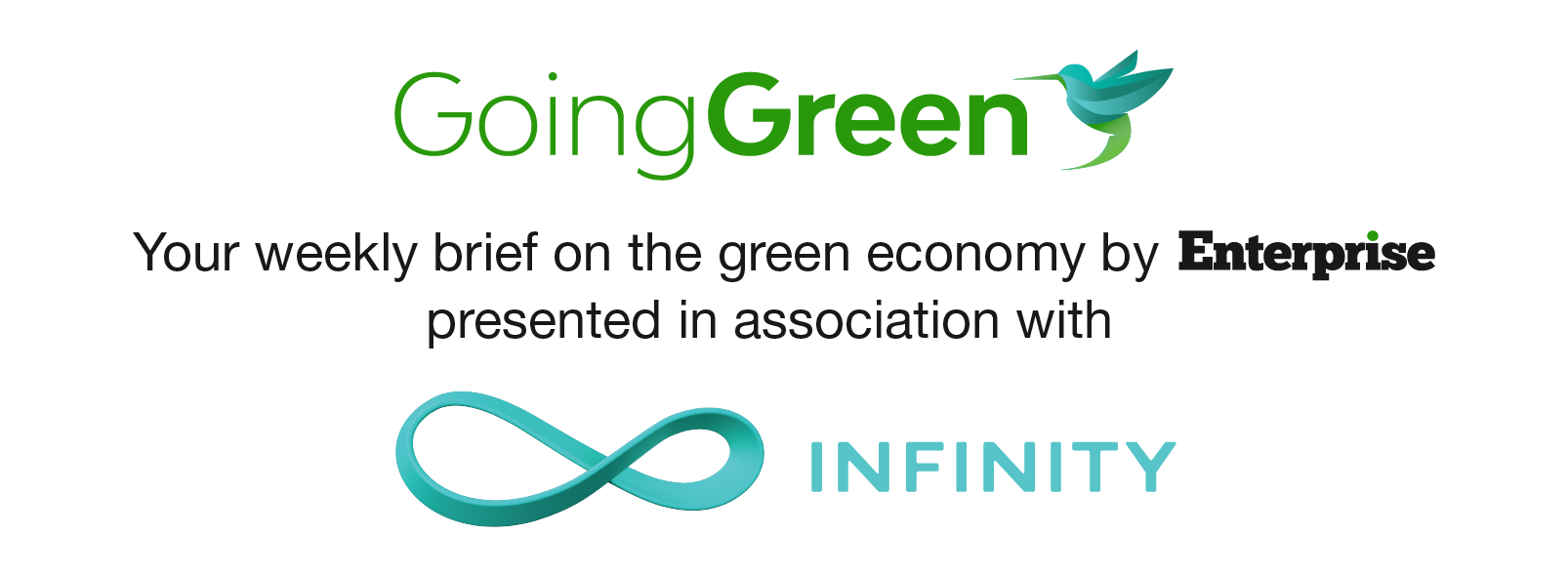

Plans are afoot to introduce a local carbon trading scheme in Egypt: Recent reports from the local press suggest that the Environment Ministry and EGX are working to set up a local carbon credit exchange. Though plans are still in their infancy and details remain scant, Enterprise spoke with several government sources and industry experts to find out more about how the platform could work and whether it could succeed in reducing carbon emissions in Egypt.
First things first: What actually is carbon trading? Think of carbon trading as a mechanism that puts a price tag on polluting activities. It’s a market-based system that allows firms to buy and sell carbon credits tied to the volume of their emissions, providing a financial incentive to reduce pollution. Companies are handed an allowance in proportion to their emissions and receive credits, each equal to one ton of CO2; they need to purchase more credits if they want to exceed their limit, while those who cut emissions can earn by selling their credits. How much a company has to pay to exceed their emissions cap depends on the market, where supply and demand dynamics determine the price of credits.
Few countries have launched nationwide compulsory emissions trading schemes since the concept was born in the late 1990s. The EU’s emissions trading scheme is the largest international system in the world, covering around 41% of the bloc’s emissions as of 2021, while China last year launched the world’s largest carbon market. Other major economies such as the US and Japan are still to set up national carbon credit markets.
From what we know so far, plans for an Egyptian carbon market follow the international blueprint: The exchange will allow entities that are undertaking emissions-reducing projects to sell certified emissions reduction (CER) credits, Moustafa Mourad, head of the Central Department of Air Quality at the Environment Ministry, told Enterprise. Each credit would be equivalent to one ton of CO2 and could be sold to both local and international buyers, he said.
But key details are yet to be ironed out: It remains unclear which industries would be covered by the scheme and whether participation would be compulsory.
This wouldn’t be the first time Egyptian companies have gotten involved with carbon credits: Egypt’s public and private sector has previously dabbled in carbon trading, but without a regulatory framework or a local platform, activities have been ad hoc and varying widely in price and offerings.
Egypt tried its hand during the early years of the CDM: One of the biggest carbon trading platforms is the UN-run Clean Development Mechanism (CDM). Unlike the “cap and trade” systems implemented in the EU and elsewhere, the CDM is a cross-border system designed to lower pollution in the developing world. The mechanism allows private- and public-sector organizations in rich nations to meet their emissions targets by purchasing carbon credits from clean projects in the developing world and trading them on exchanges. Several Egyptian projects were listed on the CDM from 2008-2013, including the 30 MW wind farm in Zafarana and initiatives to reduce N2O emissions by state-owned enterprises.
The process was long and complicated: To issue carbon certificates under the CDM, entities first have to do a number of studies to offer guidance documents for investors, UN-Habitat Basic Services and Climate Change Programme Officer Ahmed El Dorghamy told us. From there, entities request approval from the designated national authority — the Environment Ministry in Egypt’s case — before heading to the UN, which sends an auditor to further assess the project and give recommendations. This is a long process and could take up to a year in some cases, El Dorghamy adds. Once the project is certified, it’s added to the CDM platform but still remains subject to periodic audits to ensure that it is sequestering the promised amount of carbon.
The carbon credit crash: The CDM system collapsed just five years after launching in 2008 after credit prices crashed. After reaching highs of EUR 25 in its first year, policy changes in the EU and Japan combined with supply and demand dynamics to send prices tumbling to as little as EUR 0.5 in 2012. For Zafarana, which was added to the platform in 2010, the price of a carbon certificate was USD 2-4 per tonne of carbon, Ehab Ismail, vice president of the New and Renewable Energy Authority (NREA), told Enterprise. Meanwhile, other certificates were being sold at less than USD 1 each, he said.
Private-sector players such as Sekem have also given carbon credits a go: Sekem was the first private-sector player to issue carbon certificates in Egypt back in 2009 with the aim of reducing carbon emissions in the agricultural sector under the Economy of Love (EoL) framework, Thoraya Seada, a project manager at Heliopolis University’s Carbon Footprint Center, told Enterprise. EoL encourages farmers to undertake measures to reduce their carbon footprint and helps them issue carbon credits to finance the cost of their projects. The credits are priced at EGP 400 per tonne of carbon and have mostly been sold to Sekem’s network of international companies, EoL Co-Founder and Manager Justus Harm told us. The buyers come from a myriad of industries and include Europe’s Weleda, People Wear Organic, Nature Tex, Knipex, ClimaCoin as well as Egypt’s Isis, Heliopolis University, and Atos Pharma.
An Egyptian platform could increase local participation in carbon trading and generate revenue: The move will give the government regulatory oversight of the market while also being a potentially lucrative venture, Mourad said. Instead of Egyptian companies selling certificates through foreign platforms, a local trading market will help to normalize carbon trading in the country by bringing in more players while also giving the government a means of financially benefiting from the practice, he added. Governments around the world generated more than USD 26 bn in revenues by auctioning carbon credits in 2020, according to the World Bank (pdf).
But is Egypt ready to jump on the trend? “If the aim is to reduce carbon emissions, I don’t think it will,” El Dorghamy tells us. He refers back to the CDM, saying that Egypt listed very few projects on the platform compared to the rest of the world.
It’ll all depend on who participates: Whether or not a local platform can make a meaningful difference to Egypt’s emissions will depend on whether the government makes participation compulsory, he says. “In Egypt, sensitivity to the climate change issue is still low and we still haven’t reached the critical mass that would see this bottom-up change.”
Your top green economy stories for the week:
- Integration fee discount for solar irrigation projects: The Electricity Ministry has set an EGP 0.106 per KWh integration fee for solar-powered irrigation projects on the net-metering and self-consumption systems to connect to the national grid. Other solar plants producing 1 MW or more of energy pay EGP 0.257- 0.329 per KWh in integration fees under a recent decision.
- The Oil Ministry and Eni are implementing Egypt’s first pilot carbon capture project at a cost of USD 25 mn The ministry is also planning some USD 1.25 bn worth of green petrochemical projects, including a biofuel production plant, a biodegradable plastics factory and a plastic waste recycling project.
- EBRD buys into Scatec’s green bond issuance: The lender has confirmed it will buy up to USD 100 mn worth of Scatec’s USD 334.5 mn green bond issuance to refinance its six solar plants in Benban.
- Cooperation with UN climate body for COP27: Foreign Minister Sameh Shoukry met with the Secretary General of the UN’s World Meteorological Organization to discuss cooperation for the Sharm El Sheikh summit in November.
CALENDAR
OUR CALENDAR NOW APPEARS in two sections:
- Events with specific dates or months are right here up top
- Events happening in a quarter or other range of time with no specific date / month appear at the bottom of the calendar.
MAY
10-12 May (Tuesday-Thursday): EBRD Annual Meeting and Business Forum, Marrakesh, Morocco.
12 May (Thursday): Financing sustainable development in Egypt virtual roundtable, Official Monetary and Financial Institutions Forum.
13-14 May (Friday-Saturday): Target Misr Expo, Dusit, New Cairo.
13-22 May (Friday-Sunday): PSA World Championships, Cairo.
15 May (Sunday): Last day for EGX-listed companies to file 1Q2022 earnings
Mid-May: The trial period to extend the Advance Cargo Information (ACI) system to air freight.
19 May (Thursday): Central Bank of Egypt’s Monetary Policy Committee meeting.
19 May (Thursday): EFG Hermes’ general shareholders’ meeting to discuss, among several things, a capital increase of EGP 973 mn to finance the distribution of bonus shares to the company’s minority shareholders.
25 May (Wednesday): The deadline for private companies to pre-register ahead of bidding for the second phase of the PPP national project to establish and operate 1k language schools.
30-31 May (Monday-Tuesday): Egypt Can with Industry, Cairo, Egypt.
31 May (Tuesday): The application deadline for ITIDA’s annual Export IT program.
31 May (Tuesday): Extended deadline for EGX-listed companies to disclose 1Q 2021 earnings.
May: Investment in Logistics Conference, Cairo, Egypt.
May: General Authority for Land and Dry Ports to issue the conditions booklet for the tender to establish and operate the Tenth of Ramadan dry port.
JUNE
5-7 June (Sunday-Tuesday): Africa Health ExCon, Al Manara International Conference Center, Egypt International Exhibitions Center, and the St. Regis Almasa Hotel, New Administrative Capital.
9 June (Thursday): European Central Bank monetary policy meeting.
14-15 June (Tuesday-Wednesday): Federal Reserve interest rate meeting.
15-18 June (Wednesday-Saturday): St. Petersburg International Economic Forum (SPIEF), St. Petersburg.
16 June (Thursday): End of 2021-2022 academic year for public schools.
21-22 June (Tuesday-Wednesday): Aswan Forum for Sustainable Peace and Development, Cairo.
23 June (Thursday): Central Bank of Egypt’s Monetary Policy Committee meeting.
27 June-3 July (Monday-Sunday): World University Squash Championships, New Giza.
30 June (Thursday): June 30 Revolution Day, national holiday.
30 June (Thursday): Deadline for bids for National Democratic Party HQ redevelopment contract.
June: Egypt will launch a unified ticketing system for all means of transport at the Adly Mansour Interchange Station.
June: Polish President Andrzej Duda will visit Egypt to coordinate ways to ship Ukrainian wheat to Egypt amid the war in Ukraine.
JULY
July: A law governing ins. for seasonal contractors will come into effect.
July: Fuel pricing committee meets to decide quarterly fuel prices.
1 July (Friday): FY 2022-2023 begins.
1 July (Friday): Official rollout of e-receipt system begins.
8 July (Friday): Arafat Day.
9-13 July (Saturday-Wednesday): Eid Al Adha, national holiday.
21 July (Thursday): European Central Bank monetary policy meeting.
26-27 July (Tuesday-Wednesday): Federal Reserve interest rate meeting.
30 July (Saturday): Islamic New Year.
Late July – 14 August: 2Q2022 earnings season.
AUGUST
August: Work to extend the capacity of the Egypt-Sudan electricity interconnection to 600 MW to be completed.
18 August (Thursday): Central Bank of Egypt’s Monetary Policy Committee meeting.
SEPTEMBER
September: Egypt will display its first naval exhibition with the title Naval Power.
September: Central Bank of Egypt’s Innovation and Financial Technology Center to launch incubator for 25 fintech startups.
8 September (Thursday): European Central Bank monetary policy meeting.
18 September (Sunday): Deadline for brokerage firms, asset managers and financial advisors to register with the Egyptian Securities Federation.
20-21 September (Tuesday-Wednesday): Federal Reserve interest rate meeting.
22 September (Thursday): Central Bank of Egypt’s Monetary Policy Committee meeting.
OCTOBER
October: World Bank and IMF annual meetings in Washington, DC
October: Fuel pricing committee meets to decide quarterly fuel prices.
1 October (Saturday): Use of Nafeza becomes compulsory for air freight.
6 October (Thursday): Armed Forces Day, national holiday.
8 October (Saturday): Prophet Muhammad’s birthday, national holiday.
18-20 October(Tuesday-Thursday): Mediterranean Offshore Conference, Alexandria, Egypt.
27 October (Thursday): European Central Bank monetary policy meeting.
Late October – 14 November: 3Q2022 earnings season.
NOVEMBER
November: Cairo Water Week 2022.
1-2 November (Tuesday-Wednesday): Federal Reserve interest rate meeting.
3 November (Thursday): Central Bank of Egypt’s Monetary Policy Committee meeting.
4-6 November: The Autotech auto exhibition kicks off at the Cairo International Exhibition and Convention Center.
7-18 November (Monday-Friday): Egypt will host COP 27 in Sharm El Sheikh.
21 November-18 December (Monday-Sunday): 2022 Fifa World Cup, Qatar.
13-14 December (Tuesday-Wednesday): Federal Reserve interest rate meeting.
15 December (Thursday): European Central Bank monetary policy meeting.
DECEMBER
22 December (Thursday): Central Bank of Egypt’s Monetary Policy Committee meeting.
JANUARY 2023
January EGX-listed companies and non-bank lenders will submit ESG reports for the first time.
January: Fuel pricing committee meets to decide quarterly fuel prices.
EVENTS WITH NO SET DATE
1H2022: Target date for IDH to close its acquisition of 50% of Islamabad Diagnostic Center.
1H2022: e-Finance’s digital healthcare service platform, eHealth, will launch its services.
1H2022: The government will respond to private companies’ bids to build desalination plants.
1H2022: Egypt’s second corporate green bond issuance expected to be announced.
14 March-30 June: The “Escape to Egypt” exhibition at the Coptic Museum, in celebration of its 112th anniversary.
2Q2022: The Sovereign Fund of Egypt will invest in two companies in the financial inclusion and non-banking financial services sectors.
End of 2Q2022: The Financial Regulatory Authority’s new Ins. Act should be approved.
End of 2Q2022: Door for bidding for the contract to redevelop the site of the former National Democratic Party HQ to close.
End of 1H2022: Emirati industrial company M Glory Holding and the Military Production Ministry will begin the mass production of dual fuel pickup trucks that can run on natural gas.
2H2022: The inauguration of the Grand Egyptian Museum.
2H2022: IEF-IGU Ministerial Gas Forum, Egypt. Date + location TBA.
2H2022: The government will have vaccinated 70% of the population.
3Q2022: Ayady’s consumer financing arm, The Egyptian Company for Consumer Finance Services, to release its first financing product.
End of 2022: e-Aswaaq’s tourism platform will complete the roll out of its ticketing and online booking portal across Egypt.
2023: Egypt will host the Asian Infrastructure Investment Bank’s Annual Meeting of the Board of Governors in 2023.
**Note to readers: Some national holidays may appear twice above. Since 2020, Egypt has observed most mid-week holidays on Thursdays regardless of the day on which they fall and may also move those days to Sundays. We distinguish above between the actual holiday and its observance.
Enterprise is a daily publication of Enterprise Ventures LLC, an Egyptian limited liability company (commercial register 83594), and a subsidiary of Inktank Communications. Summaries are intended for guidance only and are provided on an as-is basis; kindly refer to the source article in its original language prior to undertaking any action. Neither Enterprise Ventures nor its staff assume any responsibility or liability for the accuracy of the information contained in this publication, whether in the form of summaries or analysis. © 2022 Enterprise Ventures LLC.
Enterprise is available without charge thanks to the generous support of HSBC Egypt (tax ID: 204-901-715), the leading corporate and retail lender in Egypt; EFG Hermes (tax ID: 200-178-385), the leading financial services corporation in frontier emerging markets; SODIC (tax ID: 212-168-002), a leading Egyptian real estate developer; SomaBay (tax ID: 204-903-300), our Red Sea holiday partner; Infinity (tax ID: 474-939-359), the ultimate way to power cities, industries, and homes directly from nature right here in Egypt; CIRA (tax ID: 200-069-608), the leading providers of K-12 and higher level education in Egypt; Orascom Construction (tax ID: 229-988-806), the leading construction and engineering company building infrastructure in Egypt and abroad; Moharram & Partners (tax ID: 616-112-459), the leading public policy and government affairs partner; Palm Hills Developments (tax ID: 432-737-014), a leading developer of commercial and residential properties; Mashreq (tax ID: 204-898-862), the MENA region’s leading homegrown personal and digital bank; Industrial Development Group (IDG) (tax ID:266-965-253), the leading builder of industrial parks in Egypt; Hassan Allam Properties (tax ID: 553-096-567), one of Egypt’s most prominent and leading builders; and Saleh, Barsoum & Abdel Aziz (tax ID: 220-002-827), the leading audit, tax and accounting firm in Egypt.

